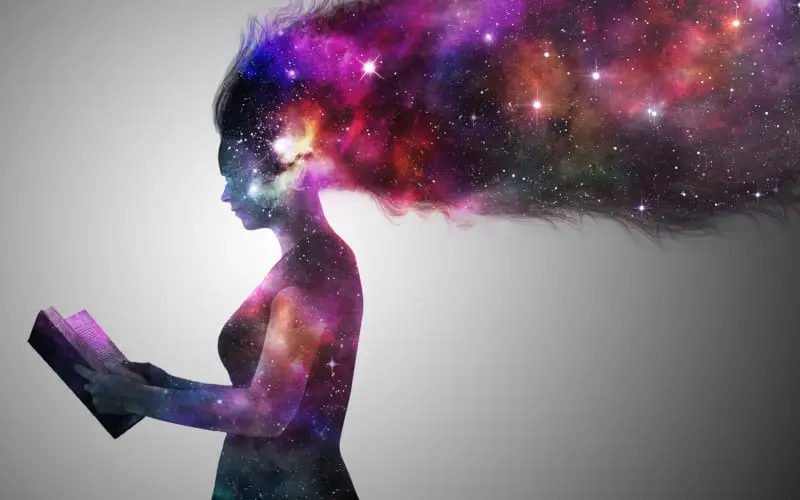Picture for a minute yourself sitting quietly somewhere, alone.
While you’re alone, your thoughts race through you, flowing like a school of fish swimming down a river. As your thoughts pass by, you ponder, think, debate with yourself, perceive them , and judge them. Often unconsciously filtering each thought ever so slightly through your ego to make it more palatable.
And then, quietly but with a deafening certainty, you realize something.
Your thoughts before they pass through any filter is You. Your real Self. It was, has been, and always will be the real you.
This is a reality truer than what you previously knew. You look around without passing judgment on what you see and hear, only experiencing the utterly simple joy of being in the present moment.
In Zen, this feeling is called Satori. In our Western world, we call it an epiphany or an awakening.
We typically refer to it as ego death, ego-loss, or ego dissolution. It might sound like a fantasy, but this experience happens when the filter you pass your experiences disappears.
In this article we’ll explore the science surrounding ego death, expert opinions, and first hand accounts of what ego death feels like.
Let’s Dive In.
First Thing’s First: What’s An Ego?
The term ego comes from the Latin word “Ego” meaning I or myself.
Our modern understanding of it goes back to the grandfather of psychotherapy and modern day psychology, Sigmund Freud. Freud’s understanding of the ego is that it acts as an “intermediary filter” between reality and the mind, the conscious and unconscious, the id and superego.
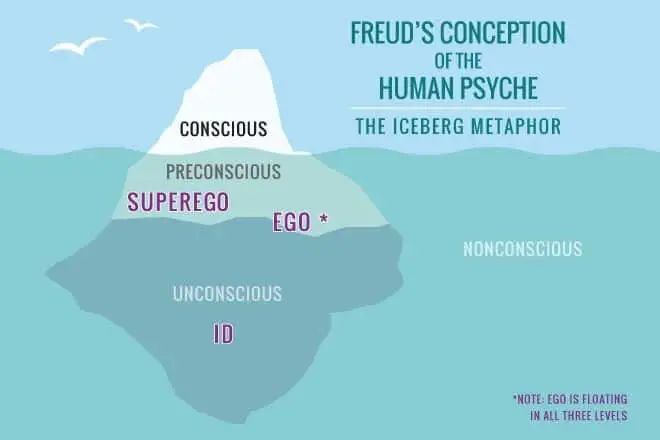
This understanding by Freud is an excellent start, but it leaves a lot of important stuff out.
As someone who worked closely with Freud, Carl .G Jung described the ego as “the part of the psyche that contains our personal identity”. Jung believed the ego was the part of ourselves we build out of our memories. Although we do have the power to distort our memories through our egos.
More modern scientists believe they’ve found a specific region within the brain that contains or at least relates to the ego: The Default Mode Network (or DMN).
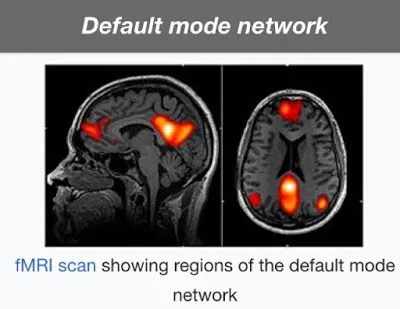
When your brain is at rest, several interconnected areas of the brain actually increase their activity and draw more blood flow to them. Yet when we pay deliberate attention to something, activity in these areas decreases. This area is known as the default mode network.
When you interact with the world, you’re doing it through the ego. It comments, remembers, discusses, judges, and criticizes everything that goes on both outside and inside you.
We can simplify all this for clarity: the ego is the interface between your Self and your reality.
What “Ego Death” Really Means
No one actually dies with an ego death. It’s important to remember that the ego doesn’t really “die”.
In fact, the term ‘ego death’ can be a bit misleading and confuse people going through the experience.
What happens is a kind of detachment from the ego.
What really “dies” is the identification with ego. You realize you are not what you thought you were. You are not your thoughts, you are not the image you have constructed of yourself, nor is the view you have of the world as accurate as you thought.
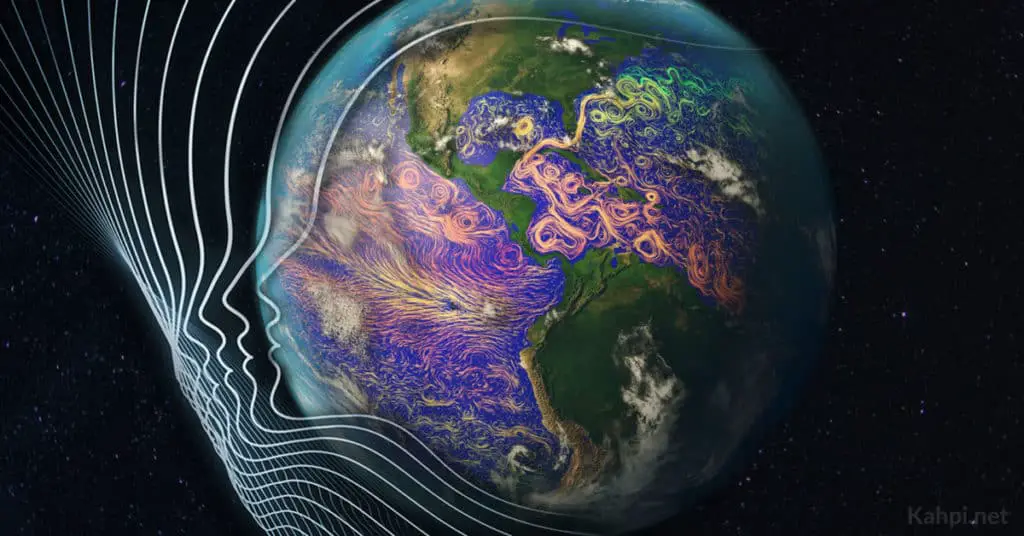
Or, as Dr. Stanislav Grof puts it in his book titled, The Adventure of Self Discovery:
“Ego death means an irreversible end to one’s philosophical identification with skin-encapsulated ego’”.
Powerful stuff !
The Evolutionary Purpose of Your Ego
Our ego’s exist for a reason, why? The ego has access to all of your conscious memories, learned responses, and is the source behind many of our thoughts.
When our ancestors saw a cave bear and their instinct told them to react, the ego was the part that made them wave around the torch they were holding and to make loud noises to scare the bear away.
And it worked. We got very good at surviving by using this interface combined with our intelligence.
The ego also told our ancestors to exaggerate the story from a small cave bear into a large family of grizzly bears in order to look tougher amongst our ancient cave peers.
The ego’s real purpose is to separate. It separates us from reality as a means of psychological protection and survival.

All of this separation is a vital function of how life works in its current state. Our entire civilization is built on the idea that things can and should be separated. It’s so far down in the foundations that we don’t even notice it.
That’s because ego goes back before writing, before farming, back to the ancient roots of our human DNA.
The Three Components Of The Ego
Because the ego is not something tangible like an apple which we can see, dissect, and chemically analyze, there’s a lot of debate about what exactly the ego is and how it works.
If you were to ask random people to describe what ego is, answer would vary for every single person on the planet.
That said, it’s broadly accepted by experts that there are three major components present in any ego. These are:
1. The Ego and Self-Image
The picture of yourself you have in your head. Your perception of who and what you are.
2. The Ego and Self-Esteem
Your perception of your value relative to other people. Your belief about your place in the world.
3. The Ego and Self-Identity
This comprises all of the things you believe are important to who you are. If self-image is your picture of yourself, identity is what makes you, you.
Notice anything interesting about the three components of ego?
All of these components are tools for separating yourself from others.
You can’t have an image of yourself unless it’s distinct and clear and maintained. You can’t value yourself without comparing yourself to other, comparable people. And you can’t build an identity any way except dualistically – who am I, and who am I not.
The Ego as an Engineer of Your Reality
By creating a sense of self separate from everything else, our ego is able to engineer our reality by filtering our perception of reality.
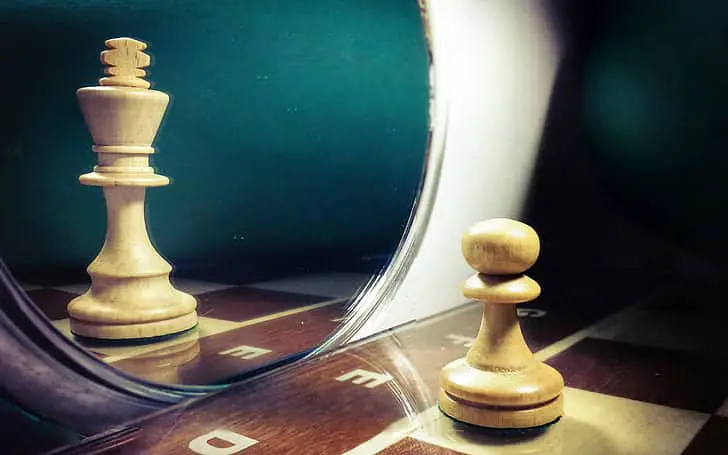
Thus, your ego creates what futurist Robert Anton Wilson, among other experts, called your “tunnel-reality” – the set of lenses through which you view the world, that you believe unconsciously to be the real, whole world.
If we had to perceive and sort through every bit of information that came in through our senses, we’d never get anything done. So this constructed tunnel reality lets us conveniently filter out everything we don’t believe we need, before it even gets to our conscious awareness.
Do You Need an Ego in Today’s Age?
Mostly, yes.
The ego is a tremendously helpful tool that we use constantly to navigate the world that we find ourselves in.
As touched on above, the ego acts as a separation barrier between reality and our perception of it. It also acts a s a heavy motivating force. Ego drives us to compete, drives us to innovate, and drives us to procreate.
That doesn’t mean your ego should be in charge.
Problems arise when you lose control of your ego. When you lose self-awareness, lie to yourself, and let your ego warp your perception of truth is when your ego has gotten out of control. When you forget to be self-aware, when you lose the ability to consciously choose what things matter and what don’t.
When your ego is driving the real you becomes a passenger asleep in the back seat.
Ego death is what happens when the real you wakes up.
What Causes Death Of The Ego?
According to one study written by doctoral candidate in medical neuroscience Abigale E. Calder, self-described ‘ego death’ was accompanied by lower glutamate activity (neurotransmitter activity) in the hippocampus region of the brain, and higher glutamate activity in the medial prefrontal cortex.
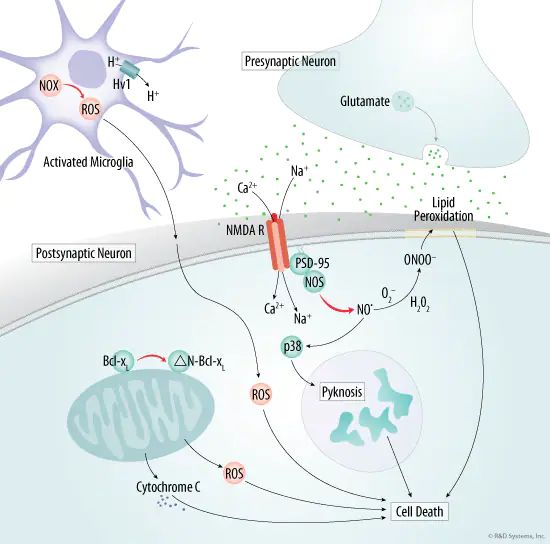
The higher these respective changes, the more intense the self-reported ‘ego death’ AKA ‘ego dissolution’. So there you go! All you have to do is move some glutamate around in your brain, and you can experience all the ego death you want!
OK, maybe it’s not quite that simple.
What causes the differing neuro-connectivity? Science doesn’t yet have all the answers here yet, but that isn’t the end of the story.
What about the other side of the coin? Where the limits of science exist, there’s history, anecdotal evidence, and mysterious traditions to take it’s place.
A famous story about the Buddha said that he would not answer questions about the nature of consciousness or unconsciousness, simply because it was irrelevant and unhelpful. He compared the phenomenon to a man having been shot with an arrow demanding to know the type of arrow, where it was shot from, how tall was the man who shot him, and so on.
It’s not that these questions have no merit, but if you’re suffering from lack of happiness and an overinflation of ego, the first thing to do is to stop.
Said another way, the exact scientific cause of ‘ego death’, is less important than the wide reaching effects of ego death. In time, science and technology will be able to measure the effects of what we are already experiencing.
How To Achieve Ego Death ( Explained)
Ego death is a phenomenon that is unique to the person experiencing it. That means that “achieving” ‘ego-death’ is never as simple as just following the instructions.
The first thing anyone who sincerely wants to work towards an ego-death must do, is to have some regimen of disciplined practice.
Ego death can be achieved through meditation practices like yoga, therapeutic, psychedelic, or other disciplined means. But any long-lasting changes to the ego have to be tempered patiently by a committed discipline of some kind.
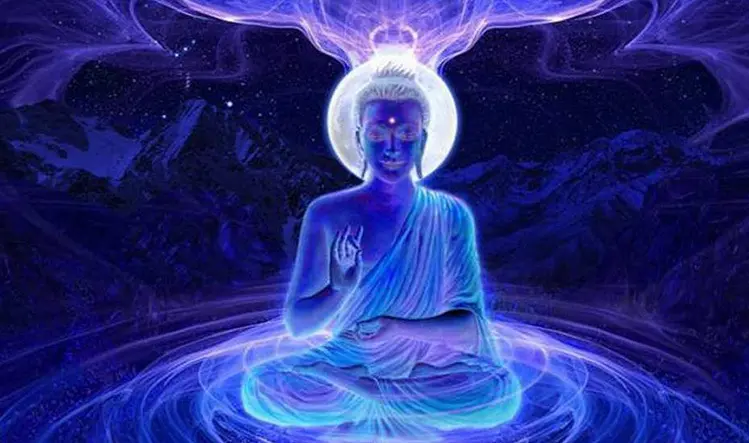
Monks do not meditate for an hour or so every Sunday. They live it. They work tirelessly to bring more consciousness into their lives every day, every second.
Another important step is to learn how to shut up the voice in your head. “When you are silent it speaks. When you speak it is silent”, as the Zen poem goes. Controlling your thoughts is what many call mindfulness.
Tibetan Meditation for Ego-Loss
One method of ego-death originates from Tibetan Buddhism, and is as simple as moving. It goes like this:
- Sit, stand, or lie down comfortably somewhere without distractions.
- Close your eyes and turn your attention inwards, to your thoughts, feelings, and so on (sense-data)
- With every piece of sense-data that comes to your attention, ask sincerely “is this what I am?”
- Eventually you still stop identifying with anything and realize that you are nothing but the observer of your thoughts, the one who watches everything silently.
- Boom. Done. Great job, champ.
I love this meditation because it gives the practitioner something to do more than sitting quietly and worrying about if they’re doing it wrong.
But in order for this to work it can’t be done once and forgotten, it must be done as part of your disciplined daily routine.
The 3 Stages of Ego Death
It’s hard to say when exactly ego death begins. Does it begin right when you start a meditative habit? When you first sip the sacred brew?
So I’m going to leave out the build up and most of the aftermath in order to focus on the main event.
In my experience, there are three stages of ego dissolution. Interestingly, it closely resembles an ancient religious formula that crops up many times in history, in many different places around the world.
In ancient Egypt it was the story of Osiris. Even further back there’s the Sumerian myth of Inanna’s descent into the Underworld. The Greeks had Dionysus and Persephone.
But for most Westerners the most familiar story is none other than Christ’s death and resurrection.
So what does that look like for the ego?
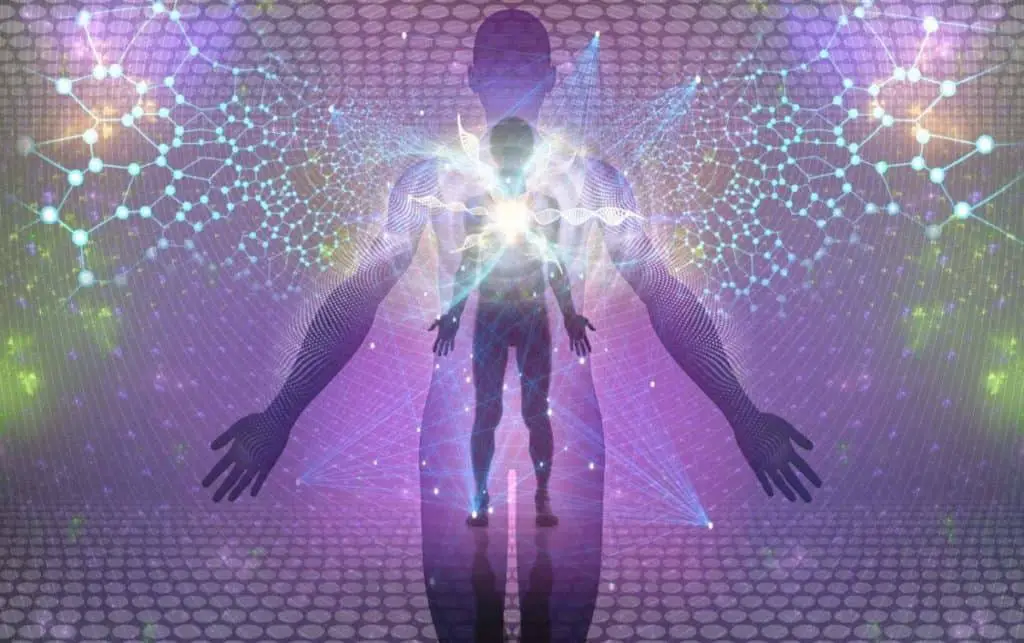
Ego Death Stage 1- Death
Death is the moment you realize that you are not your ego. You are suddenly freed from the trap of thinking you are a mind encased within a body, separate from all other minds and separate from the rest of reality. Your self-image and identity collapses as you realize your perception of reality is all a work of fiction you have been telling yourself for as long as you can remember.
Everything is one. You might feel a profound and infinite sense of peace, love, and universal harmony.
Or if you resist, you might feel like you’re dying, fading out of existence into blackest nothing.
Either way, the experience will not last forever.
Ego Death Stage 2- The Journey
This phase begins once you realize that even though your ego has disolved, there is still a You. Your Self still exists, and was always there. Overtime you may have been unconsciously shielding the real you with your ego.
At this point, many things can happen. You might have visions (much more likely if you’re taking psychedelic drugs).
You could have insights or epiphanies into your life, or the lives of others, or the origins of life itself.
Many people describe being offered deep truths or profound information coming from unexpected sources. Ego death can feel like life is offering you brand new experiences, or like you’re looking at old things in a brand new way.
Eventually though, this period of reflection, realization and journeying must come to an end.
Ego Death Stage 3- The Rebirth
Experienced spiritual practitioners will often try to rebuild their ego deliberately using methods too numerous and diverse to mention here. But the goal will be to rebuild their everyday waking life in a way more conducive to what they want their reality to be like from now on.
Eventually the Ego will come back. This will happen whether you’re consciously aware of it or not.
If you haven’t prepared or have no idea what’s going on, then this process will happen automatically, and the real you might even be lulled back to sleep while your ego takes back control of the wheel.
To have a worthwhile ego death experience, I would recommend incorporating some form of meditation as a means of keeping yourself disciplined and self-aware.
What Does Ego Death Feel Like?
Aldous Huxley in his autobiographical work “The Doors of Perception”, writes about the feeling of experiencing a “miracle, moment by moment, of naked existence” . Indeed, feelings of intense and unbounded ecstasy go hand in hand with psychedelic experiences much as they do with mystical religious experiences.
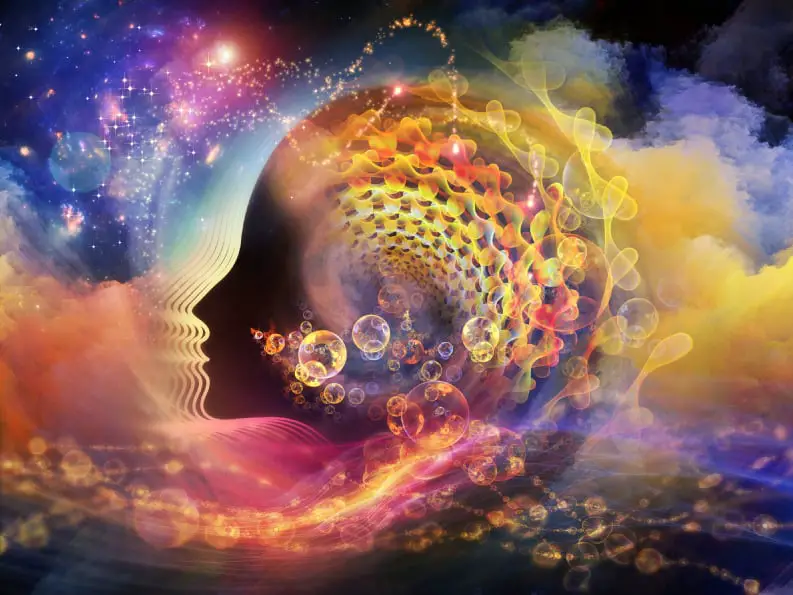
People tend to experience extreme tranquility, peace, stillness and balance. There is often a sensation of spaciousness, as if one is suddenly aware of the immense emptiness within things that previously seemed vastly full.
The experience is highly personal. No two egos are the same, so no two ego-losses can be the same either.
I’ve experienced ego-death a few times personally, and although the in-the-moment experience has varied from funny to euphoric to scary…, the after-effects of self-reflection, realization, and life epiphanies have always been a constant feeling of gratefulness, increased happiness, and undying love.
Ego Death Can Be Pleasant Or Unpleasant (Or Both)
Dr. Timothy Leary puts it best, Ego-death is sudden and usually unexpected, so it can be intensely unpleasant for, as he says, “the unprepared, those who anxiously cling to their egos”.
In this quote Dr. Leary is talking about the stages of ego loss during a psychedelic experience. But the principle applies to any time when the ego dissolves.
Someone who holds on and resists, fighting the loss of ego because they can’t rid themselves of the notion that their ego is all they are, well… they’re going to have a bad time.
This is a common source behind why some people experience “bad trips. The fading ego flails and thrashes to keep its presence known, and the person holding on to it genuinely believes they are dying.
They aren’t, but the lies that they’ve been telling themself and holding onto are.
Why Ego Death Feels Like Dying
It feels like dying because, in a sense, it is.
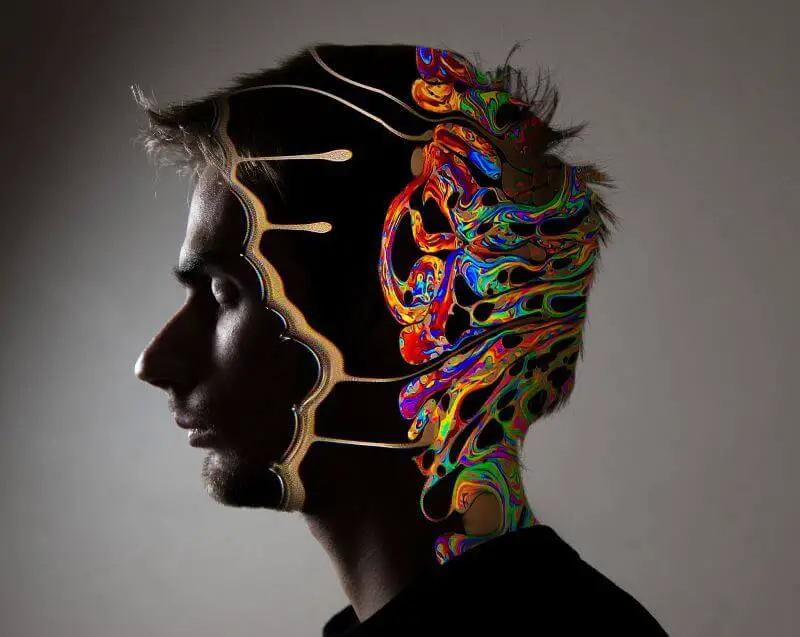
When I experienced the psychedelic remedy known as ayahuasca, I fell into a deep meditative state which, having not died before, felt to me like I was experiencing death, and much to my surprise, I was OK with it. Not scared, not worried, but completely at peace.
Imagine what it’s like for a second. Everything you thought you were suddenly vanishes. Time disappears; there is no past or future, only the infinite present. Everything you took for granted is gone now.
And perhaps most shocking for many people is that the self-talk has stopped. For most people this internal voice has been commenting on anything and everything non-stop for as long as they can remember.
No ego, no self-talking. The silence in your head is all-encompassing and absolute. You have become you with-out any ego filters on your experience of reality.
What Happens After Ego Death?
Normally what happens after an ego death experience, is that it comes back, albeit in a modified or perhaps quieter form than it used to be.
Now that you’ve experienced the lack of ego, you will know that an unfiltered version of reality is an option of being. That the reality you are experiencing isn’t the only reality you could be experiencing.
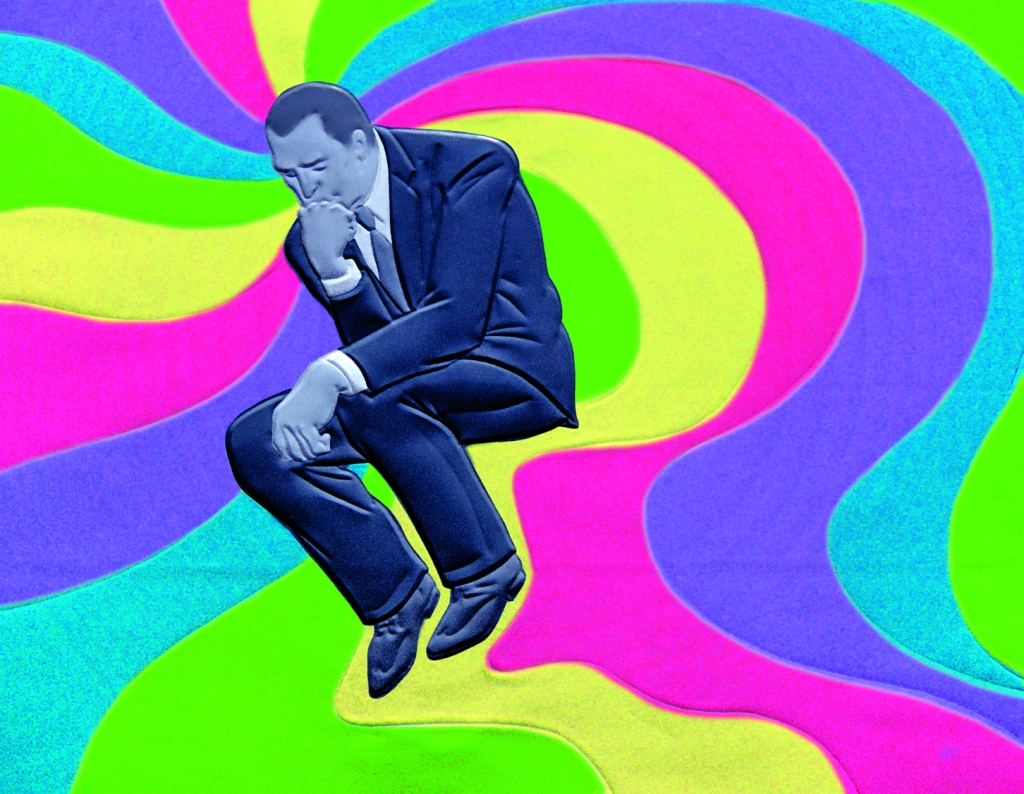
So when the ego comes back, it might have adapted to suit this new realization.
Is Ego Death Permanent?
Ego death isn’t permanent, but it can last a while.
It might feel that way for a long time. You might feel permanently changed by a particularly intense psychedelic experience, and you might very well be.
But on the whole, most ego death is only temporary. Ego can creep in anywhere when you’re not looking, and it will do anything to keep itself alive.
That might sound insidious, but it’s really the ego’s function – separation and survival.
Alan Watts said that as soon as you think you’ve transcended the ego, it moves up a level and attaches itself to something else, making it even harder to spot and notice.
Is Ego Death Bad?
Almost certainly not.
Ego-loss is an intense and confusing experience for anyone undergoing it, but almost everyone who has experienced an ego-death even while enduring a difficult “bad trip” says that it was rewarding.
Regarding his psychedelic studies, Dr. Rick Strassman states that there didn’t seem to be any lasting damage to participants on high doses of the compound DMT. This was true even when their trips and ego-loss experience had been extremely unpleasant and frightening.
Having personally experienced a “bad-trip” I was able to reflect on the experience later on and have since felt that I’ve learned a beyond valuable life-lesson from the experience. Totally worth it in the grand scheme of things.
Ego Death And Psychedelic Therapy
As metal health awareness continues to grow, our collective ability as a society to treat mental health needs to expand. Psilocybin and other psychedelics are now being openly discussed, researched, and even traded as stocks on the public markets.
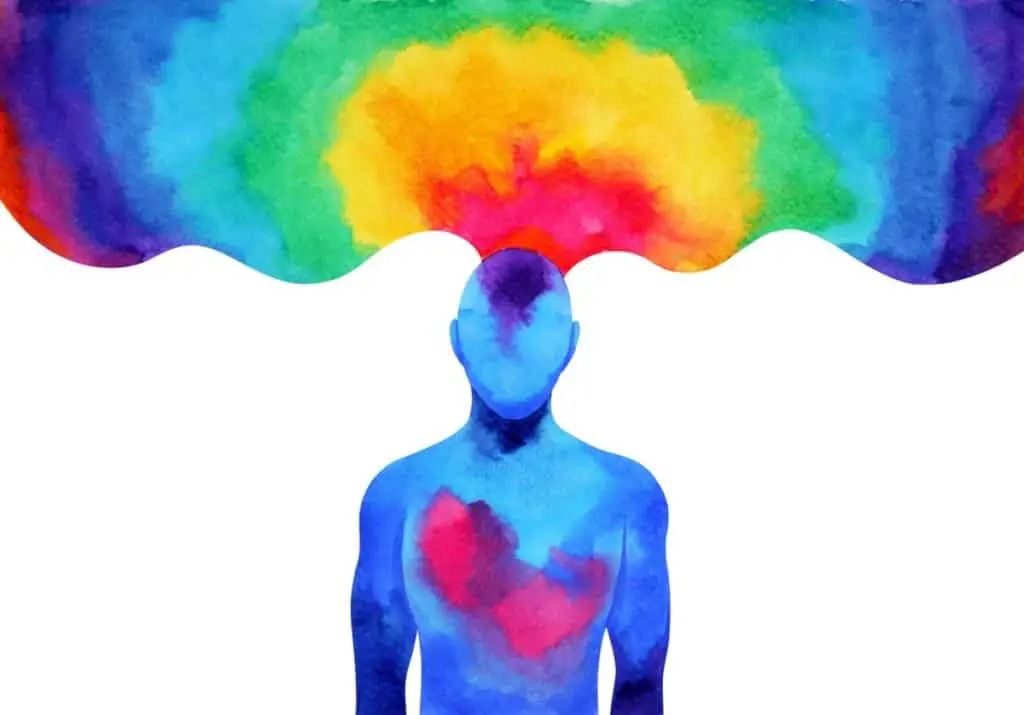
Every single human is capable of getting stuck in routines, mindsets and perspectives. Both good and bad. While not everyone is up for a full psychedelic experience, micro-dosing psilocybin might be the happy medium to experience all the benefits, maintain full functionality, and not have to worry about loosing control.
Conclusively, Mushrooms may have the potential to change the future of mental health for good.
It’s impossible to talk about the science surrounding ego dissolution without heavily leaning on psychedelic research.
DMT, AKA the Spirit Molecule, is another commonly used drug for achieving ego-death. There’s evidence that the use of this psychedelic goes back at least 1,000 years in South America and probably even longer than that.
In his groundbreaking work on the spirit molecule, Dr. Rick Strassman found that administering DMT even in a hospital setting gave many volunteers profound experiences they described as intensely spiritual and transformational.
The Therapeutic Benefits Of Ego Death
Studies into the therapeutic benefits of psychedelics have found that they can be useful for treating disorders like alcoholism, depression, and anxiety. Research into this area began in the 1950s, enjoyed a brief time as the foremost area of psychiatric research, then died out in the 70s. It’s only recently that interest in the subject has renewed.
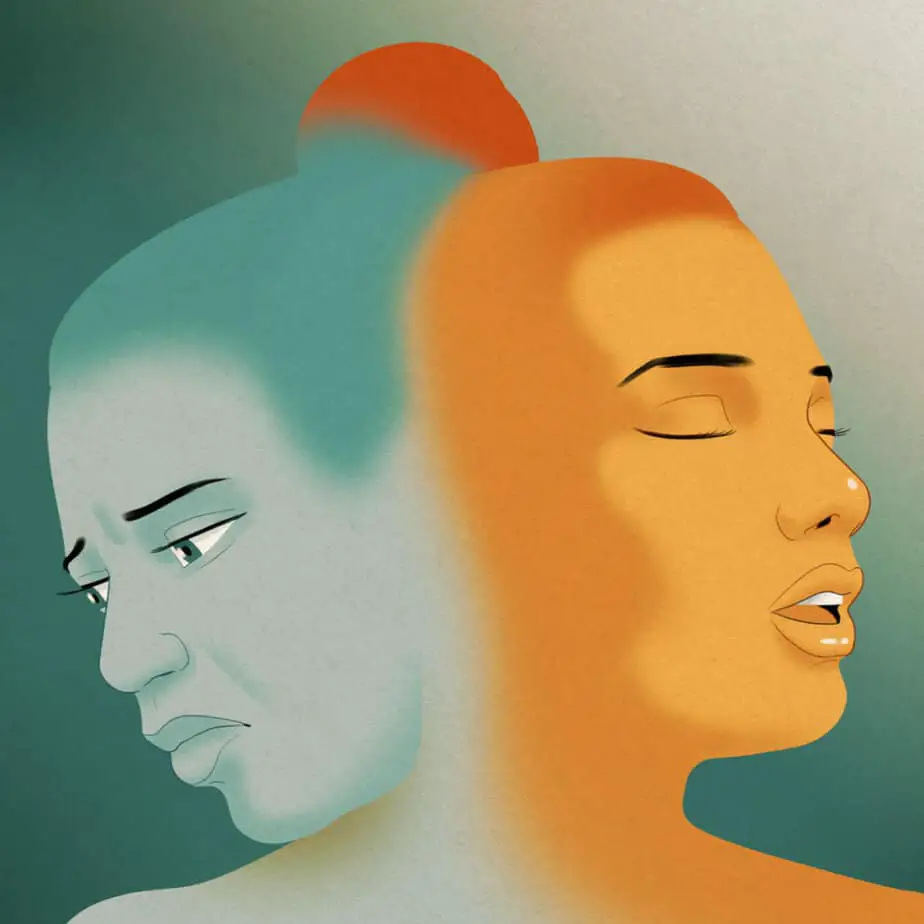
More broadly, studies of experienced meditators have found that meditation can dramatically change brain activity in the default mode network.
In everyday life terms this can lead to benefits such as reduced anxiety, stress, and depression.
So while ego death itself is impossible to measure with any degree of objectivity, activities related to it have their benefits proven.
Thus, we can reasonably infer that there are real-world benefits to this experience.
Personally, I can attest that ego dissolution experiences give one a new and lasting sense of perspective, a more peaceful and loving attitude, more willingness to engage with life, and a better mood overall.
3 Signs Someone has Already Experienced Ego Death
There are a few small but telling signs I’ve noticed in people who are a bit more ‘’awake’’ to the game than they’re letting on.
- They don’t take things too seriously – They can laugh at themselves and the absurd things in life.
- They don’t judge – a person who is conscious of their own ego is also aware of other people’s. They know that others are unconscious, but not in a patronizing way. Rather, they let other people play the game their way without judging them for any so-called “mistakes”.
- They radiate peace – if you’re sensitive, you might notice that some people have an aura that’s calming. You might feel like you can be more honest with them than you can most people. Or you just like that they seem more genuine and present than most other people.
All of these are just indicators; they don’t constitute proof of anything. Someone who has undergone ego dissolution is aware that they are playing a game, and play consciously. That can be hard to spot from the outside, unless you have a secret magic brain scanner that tells you what’s going on in everyone else’s brain.
Final Thoughts: Ego Death
Ego death AKA ego-dissolution isn’t well understood by science, but that doesn’t mean we don’t know anything about it.
It’s one of the most profound and life-changing events in a person’s life and can lead to major life epiphanies and lifestyle changes. Ego death helps us understand where we are in life, what’s really important to us, and what path to take to get us where we want to go.
Do we really want a Ferrari ? Or is that our ego talking ? Maybe what we really want is to be liked.
Ego death is not the beginning or the end, but part of the journey of life and part of seeing reality as clearly as possible with the distortion of catering to your ego.
But what do you think? Should ego death be something we should strive towards? Is it a mystical state outside of mental understanding, or a scientifically approachable process?
We’d love to hear your thoughts!
Loved what you read?
Hit that share button and let the world in on the secret – we’d be thrilled!
Got thoughts? We’re all ears for your feedback, corrections, or a good old chat. Don’t be shy; drop us a line.
And hey, don’t miss out on our curated list of must-reads in the recommended books section.
Big thanks for diving in with us today!


